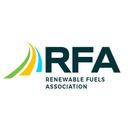U.S. Grains Council members are gathered in Salt Lake City, Utah, for the organization’s 64th Board of Delegates Meeting, held July 29-31. Market development activities for ethanol and distillers grains were among the topics addressed at the event.
Sixteen retail service stations throughout the state have received grant funding from the Minnesota Department of Agriculture to increase access to and sales of motor fuel blends containing at least 15% ethanol.
Thailand’s newly proposed National Energy Plan is expected to set a target for sustainable aviation fuel (SAF) starting in 2026, according to a report filed with the USDA. The plan also includes targets for ethanol and biodiesel.
Recently, nearly 100 industry stakeholders gathered for the U.S. Grains Council’s (USGC’s) 2024 Corn and Ethanol Conference in Tokyo, Japan. The event enhanced relationships between U.S. producers and agribusinesses and Japanese importers.
The U.S. Court of Appeals for the D.C. Circuit on July 26 issued an order vacating most of the U.S. EPA’s 2022 denials of petitions for SREs from RFS obligations, and remanding those petitions to EPA for further proceedings.
The RFA on July 25 submitted comments urging the USDA to implement the use of a “book-and-claim” accounting framework for tracking and transferring the GHG benefits of climate-smart agriculture (CSA) practices through the biofuels supply chain.
Michigan Gov. Gretchen Whitmer on July 24 used a line-item veto to eliminate a provision in the state’s fiscal year (FY) 2025 budget package that would have created a 5-cent per-gallon tax credit for E15.
The American Coalition for Ethanol has filed comments with the USDA on climate-smart agriculture related to biofuel feedstock production, encouraging the USDA and other federal agencies to rely on the U.S. Department of Energy’s GREET model.
Growth Energy has filed comments on climate smart agriculture (CSA) with the USDA emphasizing the importance of giving farmers flexibility that allows them to get credit for all of the CSA practices they deploy.
The Sustainable Aviation Fuel (SAF) Coalition responds to USDA request for information on biofuel feedstocks, encouraging the agency to ensure federal policies are science-based and technology and feedstock neutral.
A bipartisan group of 16 senators and 36 representatives on July 23 sent a letter to U.S. Treasury Secretary Janet Yellen urging her agency to take immediate action to finalize the rules to implement the 45Z clean fuel production credit.
American Farm Bureau Federation, National Corn Growers Association, Biotechnology Innovation Organization, American Soybean Association, and American Biogas Council are among more than 500 organizations calling for the passage of a new Farm Bill.
The U.K. Department for Transport on July 22 sent a written statement to the U.K. Parliament confirming that, subject to Parliamentary approval, the agency will introduce a sustainable aviation fuel (SAF) mandate starting on Jan. 1, 2025.
The U.S. EPA on June 7 approved an efficient producer pathway for Siouxland Ethanol LLC’s corn ethanol plant located in Jackson, Nebraska. The approval allows the facility to generate RINs under the RFS for non-grandfathered volumes of ethanol.
The U.S. EPA on July 18 announced it has reached a settlement with Lupton Petroleum Products Inc., and its affiliate Brad Hall Associates Inc., for violations of the Clean Air Act’s conventional and renewable fuel requirements.
The U.S. Department of Transportation’s Federal Aviation Administration has launched $1 billion fiscal year (FY) 2025 funding opportunity that could help U.S. airports develop infrastructure to increase access to sustainable aviation fuel (SAF).
Growth Energy and others filed two intervenor briefs in the U.S. Court of Appeals for the District of Columbia Circuit related to a set of consolidated lawsuits filed by oil industry and environmental petitioners challenging EPA’s RFS “set” rule.
DOE issues notice of intent to fund industrial partnerships across the bioenergy and bioproducts value chain
The DOE has announced its intent to fund partnerships between industry stakeholders and Feedstock-Conversion Interface Consortium researchers. The partnerships will address the cost and risk impacts of feedstock and process variability.
Analyzing the pros and cons of the 40BSAF-GREET model, industry leaders suggest what its replacement tax credit structure, 45Z, should preserve, change and eliminate to fairly and effectively accelerate alcohol-to-jet SAF production.
Nearly 2.04 billion RINs were generated under the RFS in June, down from 2.06 billion generated during the same month of last year. Total RIN generation for the first half of 2024 reached 12.07 billion.
The U.S. EPA on July 18 released updated small refinery exemption (SRE) data, reporting that seven new SRE petitions have been filed under the RFS during the past month. A total of 46 SRE petitions are now pending.
Ag groups call on Treasury to include domestic feedstock requirements in 45Z guidance and unbundle climate-smart ag provisions
U.S. farm groups are urging the Biden administration to maximize the benefits of the 45Z clean fuels production tax credit by ensuring only fuels made using domestically produced feedstocks are eligible and improving climate-smart ag provisions.
The USGC sponsored the Global Bioenergy Partnership’s Bioenergy Week in Rome, Italy, in June where international biofuel stakeholders and policymakers recognized the efficiency and sustainability practices of biofuel production.
King Charles announced that the U.K. Parliament will soon introduce a bill to support the production of SAF via a revenue support mechanism during his July 17 speech that formally opened a new session of the British Parliament.
The Missouri Agricultural and Small Business Development Authority on July 16 announced applications are available for the Biofuel Infrastructure Incentive Program (BIIP). Applications are due Oct. 15.
On July 17, Clean Fuels Alliance America delivered a formal notice of intent to sue the U.S. EPA for its failure to issue timely 2026 Renewable Fuel Standards. EPA is required to finalize volumes 14 months before the start of the compliance year.
A new U.S. DOE report helps answer a basic—but big—question about the future of the U.S. SAF industry: Is there enough biomass feedstock to meet the nation’s goals?
In June, the industry gathered in Minnesota for the largest, longest-running ethanol conference in the world. After four decades, the FEW remains a can’t-miss early summer event for ethanol plant personnel and the companies that support them. Photos: BBI/Sarah Morreim
ARPA-E awards $36M to develop technologies to lower GHG from ethanol production, reduce operating costs for US farmers
The Advanced Research Projects Agency-Energy (ARPA-E) on July 11 announced up to $36 million in funding to develop technologies to lower nitrous oxide (N2O) emissions by 50% from the cultivation of corn and sorghum used for U.S. ethanol production.
USGC staff and representatives traveled to Vancouver, Canada, in June to join Advanced Biofuels Canada in hosting a sustainable aviation fuel (SAF) policy roundtable on the sidelines of a USDA agribusiness trade mission.
Advertisement





























